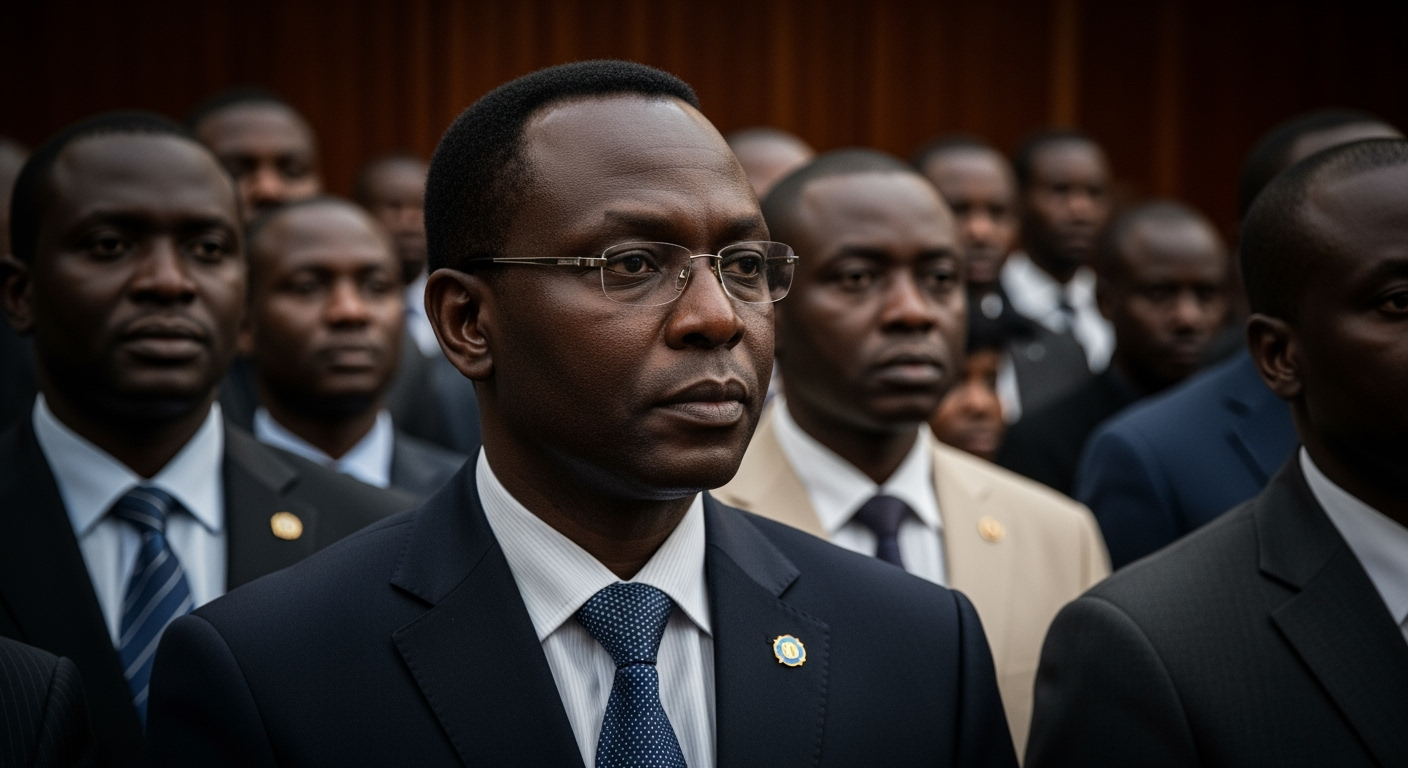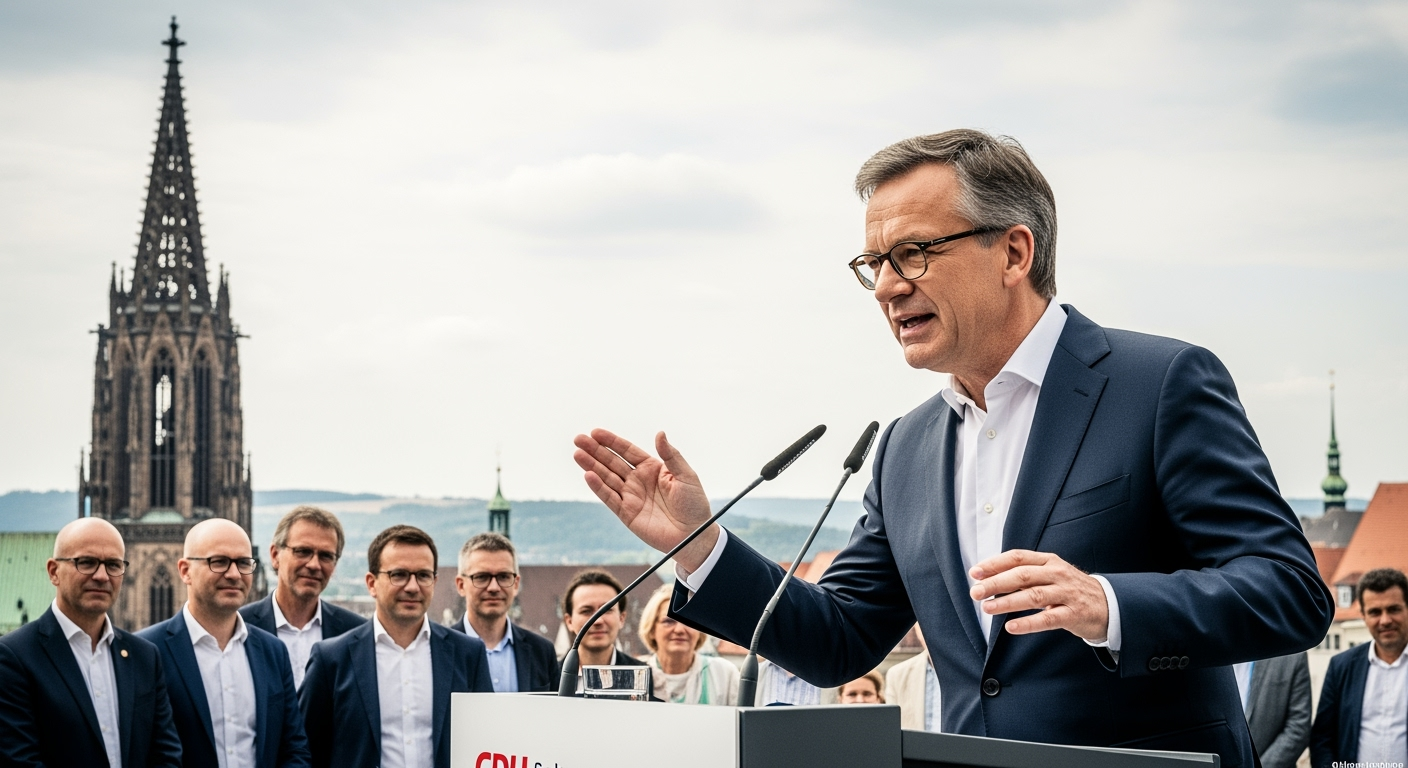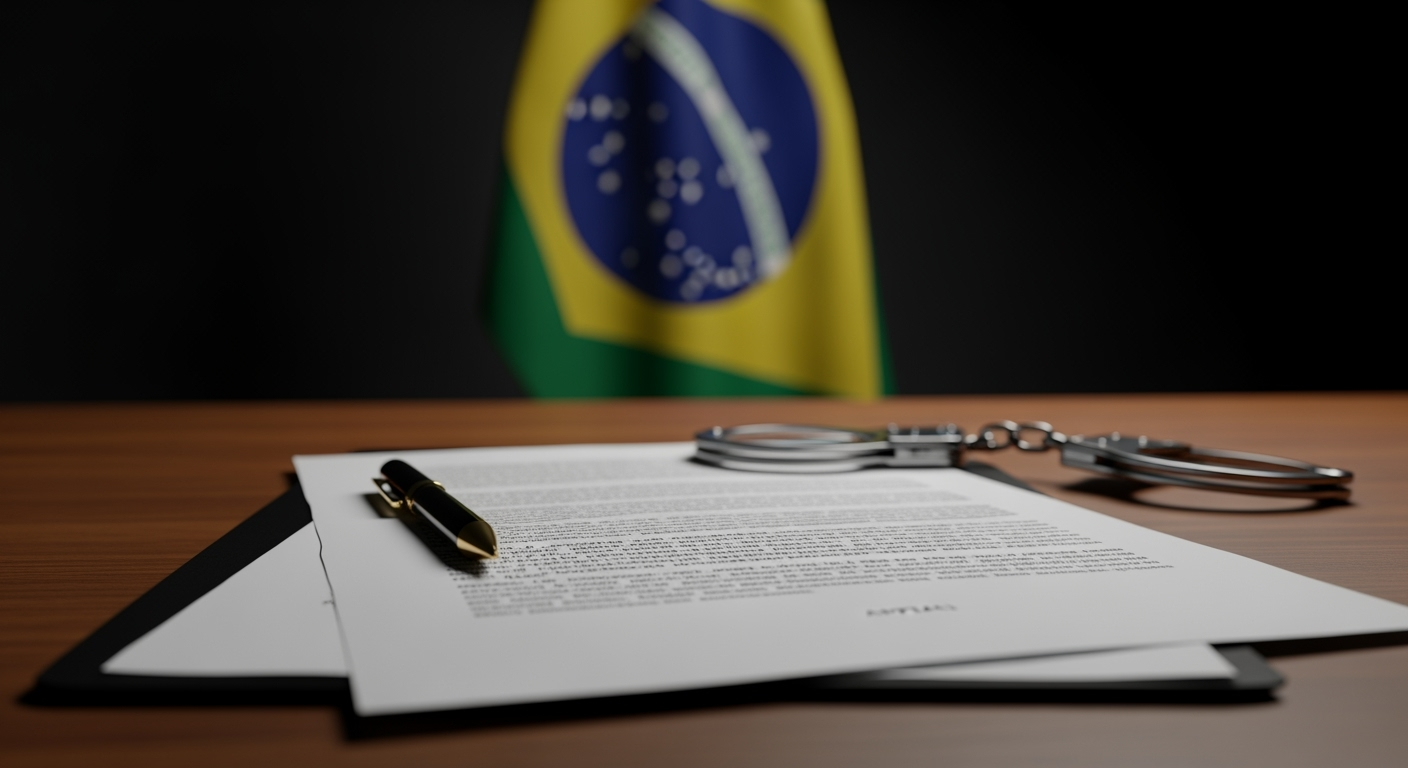Related Articles

Japan Deploys Military as Deadly Bear Attacks Reach Unprecedented Levels, Sparking National Concern

African Union Condemns 'War Crimes' as RSF Captures El Fasher, Deepening Sudan's Humanitarian Crisis





BRASÍLIA – Former Brazilian President Jair Bolsonaro's legal team officially launched an appeal Monday against his unprecedented 27-year, three-month prison sentence, handed down for his role in an alleged attempt to overthrow the nation's democratic institutions. The formal challenge to the Brazilian Supreme Court's verdict deepens the already profound political and legal quagmire surrounding the controversial far-right leader, whose conviction in September marked a historic moment for Latin American democracy. The appeal contends with "ambiguities, omissions, contradictions and obscurities" in the Supreme Court's decision, signaling a prolonged legal battle ahead for the former head of state, who has consistently denied any wrongdoing.
The appeal, filed Monday, October 27, 2025, follows the Supreme Court's September 11 ruling, which found Bolsonaro guilty on five counts, including attempting a coup and being part of an armed criminal organization. This landmark conviction, delivered by a panel of five Supreme Court justices with a 4-1 vote, makes Bolsonaro the first former Brazilian president to be convicted of attempting to stage a coup. Prosecutors in the case had presented evidence alleging a detailed plot to assassinate President Luiz Inácio Lula da Silva, his vice president Geraldo Alckmin, and Supreme Court Justice Alexandre de Moraes, whose pivotal role in the proceedings underscored the gravity of the accusations. The alleged conspiracy, which failed to secure sufficient military backing, culminated in the January 8, 2023, storming of government buildings in Brasília by Bolsonaro's supporters, echoing the events at the U.S. Capitol two years prior.
The path to Bolsonaro's conviction began after his 2022 electoral defeat to Luiz Inácio Lula da Silva. Following a two-year investigation, prosecutors charged Bolsonaro with leading a criminal organization and attempting to violently abolish the democratic rule of law. The charges stemmed from his alleged efforts to remain in power despite losing the election, culminating in the violent January 8, 2023, riots in Brasília. During the trial, Justice Cármen Lúcia highlighted Bolsonaro as the "instigator, the leader of an organization that orchestrated every possible move to maintain or seize power". The evidence presented included videos of Bolsonaro urging supporters to challenge the Supreme Court and footage of the destruction inside the court's headquarters during the riots. The court's ruling underscored the judiciary's resolve to uphold democratic principles, with Justice Alexandre de Moraes stating that Bolsonaro had tried to "annihilate the essential pillars of the democratic rule-of-law state". The severity of the sentence reflects the court's assessment of the threat posed to Brazil's constitutional order.
Bolsonaro's lawyers, led by Celso Vilardi and Paulo Amador da Cunha Bueno, characterized the sentence as "absurdly excessive and disproportionate" and expressed "profound disagreement and indignation" with the majority decision. Their 85-page motion specifically targets the duration of the prison sentence and seeks clarification on various aspects of the conviction. Under Brazilian law, Bolsonaro cannot be immediately imprisoned until all legal avenues of appeal are exhausted. The case now moves to the full Supreme Court, comprising 11 justices, for review. However, legal experts like Thiago Bottino, a law professor at the Getulio Vargas Foundation, suggest that while the Supreme Court might make adjustments, such as to the length of the sentence, it is "unlikely" for the initial ruling to be reversed entirely, especially given that only one of the five original justices dissented. This appeal process is expected to conclude by the end of 2025, though the Supreme Court judges have no set deadline to examine the arguments.
The conviction and subsequent appeal have further polarized an already fractured Brazilian political landscape. Bolsonaro's supporters continue to decry the proceedings as a "witch hunt" and political persecution, a sentiment echoed by former U.S. President Donald Trump, who initially responded with tariffs on Brazilian imports, though U.S.-Brazil relations have since reportedly improved. This conviction comes after an electoral court had already barred Bolsonaro from running for public office until 2030 due to his unproven allegations of fraud against Brazil's voting system. While Bolsonaro himself remains under house arrest since August 2025, his political influence, though diminished, persists. Allies in Congress, including his son Flavio, are actively pushing for an amnesty bill that could potentially shield him and hundreds of his supporters, who were also convicted for their roles in the January 8 riots, from prison. Such a bill, if passed, would face a likely veto from President Lula da Silva, the alleged target of the coup plot. The ongoing legal battles cast a long shadow over Brazil's next election cycle, as the conservative movement seeks a successor to Bolsonaro's charismatic, albeit legally embattled, leadership.
Bolsonaro's health, a recurring theme throughout his public life, could play a significant role in his future. The 70-year-old has endured multiple health issues, including lingering complications from a 2018 stabbing incident during his presidential campaign, a recent skin cancer diagnosis, and hospitalizations for issues like violent hiccups, vomiting, and low blood pressure. Should his appeals fail, his legal team might leverage these health concerns to request that he serve any sentence under house arrest. There is precedent for such a move; in May, former President Fernando Collor de Mello was granted permission to serve his nearly nine-year corruption sentence at home due to ill health. Legal experts acknowledge that Bolsonaro's health could make his actual imprisonment unlikely, even if the conviction stands.
In a nation still grappling with the legacies of its past military dictatorship, the trial and conviction of a former president on charges of attempting to subvert democracy underscore Brazil's commitment to judicial independence and the rule of law. As the appeal process unfolds before the full Supreme Court, the outcome will not only determine the fate of Jair Bolsonaro but also send a powerful message about the resilience of Brazil's democratic institutions in the face of grave threats. The legal and political ramifications are set to resonate across the country and beyond, shaping Brazil's trajectory for years to come.